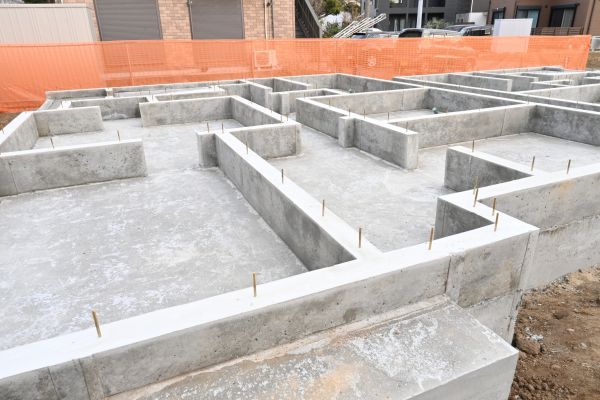
Get Crawl Space Foundation Footings in Iowa
Crawl space foundation footings in Iowa are a crucial part of building and maintaining stable, well-supported homes—especially in regions with varying soil conditions, seasonal moisture, and shifting temperatures. These footings form the base of raised foundations, providing essential structural support while helping manage ventilation, moisture control, and access beneath the home. For homes in Iowa, where weather extremes and local code compliance matter, professionally installed footings help ensure long-term safety and durability.
Benefits of Crawl Space Foundation Footings
🏗️ Long-Term Structural Support
Footings help distribute a home's load evenly and prevent foundation settlement. In Iowa, where clay soils and freeze-thaw cycles can wreak havoc on foundations, deep and reinforced footings maintain structural balance and minimize shifting over time.
💧 Better Moisture Management
Raised foundations keep homes off the ground, reducing the impact of rain, flooding, or poor drainage common in parts of Iowa. Moisture mitigation is one of the primary benefits, especially in humid or flood-prone areas.
🌬️ Enhanced Airflow and Indoor Health
Proper footings create a well-ventilated crawl space, reducing mold and mildew risks. This can improve air quality inside the home—a major concern in homes with poor crawl space insulation or damp environments.
🔍 Easier Access for Maintenance
Plumbing leaks, HVAC repairs, or electrical upgrades are easier with a raised foundation. In Iowa, where aging infrastructure is common, crawl spaces offer more flexibility and fewer headaches during renovations.
📏 Code Compliance Across Jurisdictions
Each region in Iowa may have specific footing depth and spacing requirements based on soil type and climate. Professional installers ensure your project meets all current codes to avoid rework or inspection issues.
🏡 Added Property Value
A crawl space foundation with strong footings can improve resale value and appeal to potential buyers. According to structural engineering surveys, well-built foundations are among the top five features homeowners look for when purchasing a home.
FAQs About Crawl Space Foundation Footings
How deep should footings be in Iowa?
Most regions require footings to be at least 12–36 inches deep, depending on frost lines and soil type.
What materials are used for crawl space footings?
Concrete is the most common material, often reinforced with steel rebar for added strength.
Can I build a crawl space on sloped land?
Yes, but it requires specially designed stepped or tiered footings to accommodate the slope and maintain stability.
Are vapor barriers necessary in crawl spaces?
Yes. Vapor barriers, along with proper footings, help control moisture and protect the structure from rot and mold.
Is a permit required for crawl space foundation work in Iowa?
Yes, almost all structural footing work requires permitting to ensure it meets safety and zoning standards.
Fill out the contact form to request crawl space foundation footings, and enjoy the peace of mind that comes with expert installation, improved moisture control, and long-term stability.